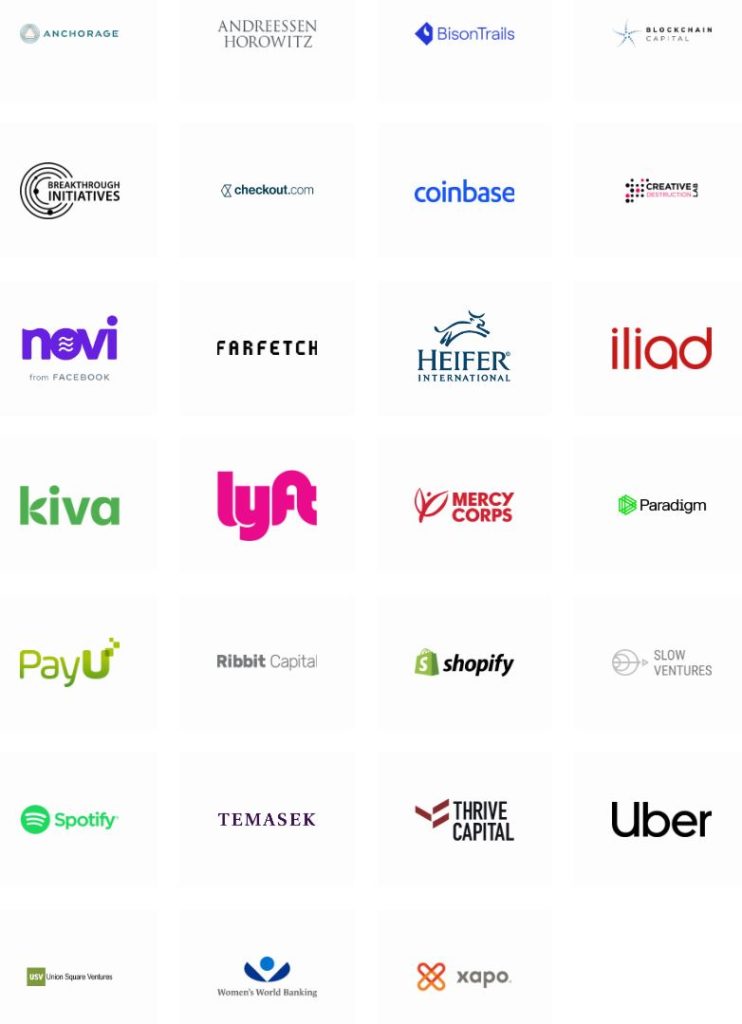
I guess that Facebook caused many central banks to realise that if they didn’t issue digital currencies then others would. Hence, why most central banks are issuing them. But it’s not an either-or scenario.
"We will see in the not-too-distant future a sovereign digital currency coming out.”
“There is absolutely a role for central bank digital currencies as well as non-central bank-sponsored digital currencies.”
Bill Winters, CEO of Standard Chartered:
The latter points towards initiatives like Facebook Financial's play.
Facebook has progressed from running their own rails to creating interoperable rails. They’ve renamed Libra to be Diem (the name is in dispute), and their mobile wallet is now Novi rather than Calibra.
What I find interesting here is the repositioning of the service and the change of partners. When the idea was originally touted Visa, MasterCard, PayPal, Stripe and more were all on board.
Now, the members of the Diem Association are all non-traditional financial partners and innovators.
The cryptocurrency was initially called Libra and was designed to be managed by a non-profit consortium consisting of several companies called the Libra Association. Facebook had planned to launch a wallet called Calibra that would allow users to send this cryptocurrency to each other.
One Libra coin was initially supposed to be backed by a basket of currencies. But regulators raised a number of concerns from the impact Libra could have on financial stability to issues over data privacy and money laundering.
In April, the Libra Association scaled back plans and said it would offer stable coins backed by just one nation’s currency, rather than a single coin backed by several currencies.
Big changes.
Supposedly planning for a January 2021 launch and with recognition that they made need to get regulatory approvals in many territories, it strikes me that they’ve been forced to move from creating a stablecoin which made regulators scream to a payment system that conforms with regulatory structures.
The long-awaited Facebook-led digital currency Libra is preparing to launch as early as January, according to three people involved in the initiative, but in an even more limited format than its already downgraded vision.
The 27-strong Libra Association said in April that it had planned to launch digital versions of several currencies, plus a “digital composite” of all of its coins. This followed concerns from regulators over its initial plan to create one synthetic coin backed by a basket of currencies.
However, the association would now initially just launch a single coin backed one-for-one by the dollar, one of the people said. The other currencies and the composite would be rolled out at a later point, the person added.
This pivot is very similar to the pivot we will see with any non-governmental payment systems. As soon as anything is outside national governments controls in the financial system, the regulators get nervous and worry about money laundering, terrorist financing, illicit use of money for criminal activities, the whole darknet world of paedophiles and druggies and more.
The thing is that there’s an awful lot of money laundering already in the financial system. Trillions of dollars a year are washed through the banks, who then report these suspicious activities to the regulators who sit and watch what’s going on and don’t do enough.
There’s a systemic issue here between nested accounts, companies within companies within companies; borders across borders across borders; banks between banks between banks; regulators next to regulators next to regulators; and so on and so forth.
This is why the whole KYC and AML thing is a mess already, and it’s going to get worse digitally unless the regulators create a cohesive and structured, systemic approach.
This is where blockchain could be a winner as the fact is that anything moved around digitally is trackable and traceable. It is why central banks issuing digital currencies should agree on a harmonised and standardised digital approach in how they do this. They should co-ordinate and reach agreements around the background technology stack, and how they inter-operate.
But then …
Meanwhile, Facebook’s Diem looks more and more like PayPal within Facebook, and the crypto crowd continue to build non-governmental currencies that are anonymous and let rip the darknet crowd whether they like it or not.
Ho-hum.
Chris M Skinner
Chris Skinner is best known as an independent commentator on the financial markets through his blog, TheFinanser.com, as author of the bestselling book Digital Bank, and Chair of the European networking forum the Financial Services Club. He has been voted one of the most influential people in banking by The Financial Brand (as well as one of the best blogs), a FinTech Titan (Next Bank), one of the Fintech Leaders you need to follow (City AM, Deluxe and Jax Finance), as well as one of the Top 40 most influential people in financial technology by the Wall Street Journal's Financial News. To learn more click here...




